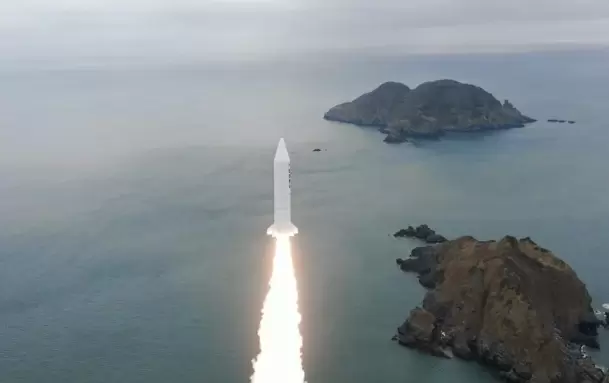Controlling rocket re-entries from space imperative to cut human risks: Study
12-July-2022

Most space launches result in uncontrolled rocket body re-entries, creating casualty risks for people on the ground, at sea and in aeroplanes, according to a study.
While the risks have long been treated as negligible, the number of rocket bodies abandoned in orbit is growing. The rocket bodies from past launches also continue to re-enter the atmosphere due to gas drag.
If the current policies of the space industry continue, there's about a 10 per cent chance over the next decade that a free-falling rocket will kill someone, revealed the study, published in the journal Nature Astronomy.
Researchers from University of British Columbia in Canada used publicly available reports of rocket launches and data on abandoned rocket bodies in orbit to calculate approximate casualty expectations due to rocket body re-entries as a function of latitude.
They also found distribution of rocket body launches and re-entries leads to the casualty expectation (that is, risk to human life) being disproportionately borne by populations in the global south, with major launching states exporting risk to the rest of the world.
"Fortunately, allowing rocket bodies to re-enter in an uncontrolled manner is increasingly becoming a choice rather than a technological limitation," Michael Byers, from the varsity's Department of Political Science.
"We argue that recent improvements in technology and mission design make most of these uncontrolled re-entries unnecessary, but that launching states and companies are reluctant to take on the increased costs involved," he added.
The study noted that controlled re-entries from orbit require engines that can reignite, enabling the launch provider to direct the rocket body away from populated areas, usually into a remote area of ocean.
Some older rocket models that lack re-ignitable engines are still used by some launch providers; these will need to be upgraded or replaced to achieve a safe, controlled re-entry regime.
The study calls out national governments whose populations are under risk to "demand that major spacefaring states act, together, to mandate controlled rocket re-entries".
They also advised to treat non-compliance with "meaningful consequences" and thus eliminate the risks for everyone. - IANS
Conspiracy Underway To Remove Nitish Kumar, Claims Mukesh Sahani
‘Something Wrong’: SC Questions Madras HC’s Handling of Karur Stampede Case
Sir In Bengal: Eci Identifies 58 Lakh Excludable Voters After Enumeration Phase Ends
Shivakumar Defends Hate Speech Bill, Accuses BJP Of Spreading Division, Hatred Among People
Opposition Moves to Impeach Justice G R Swaminathan; Kanimozhi Cites Loss of Public Trust









